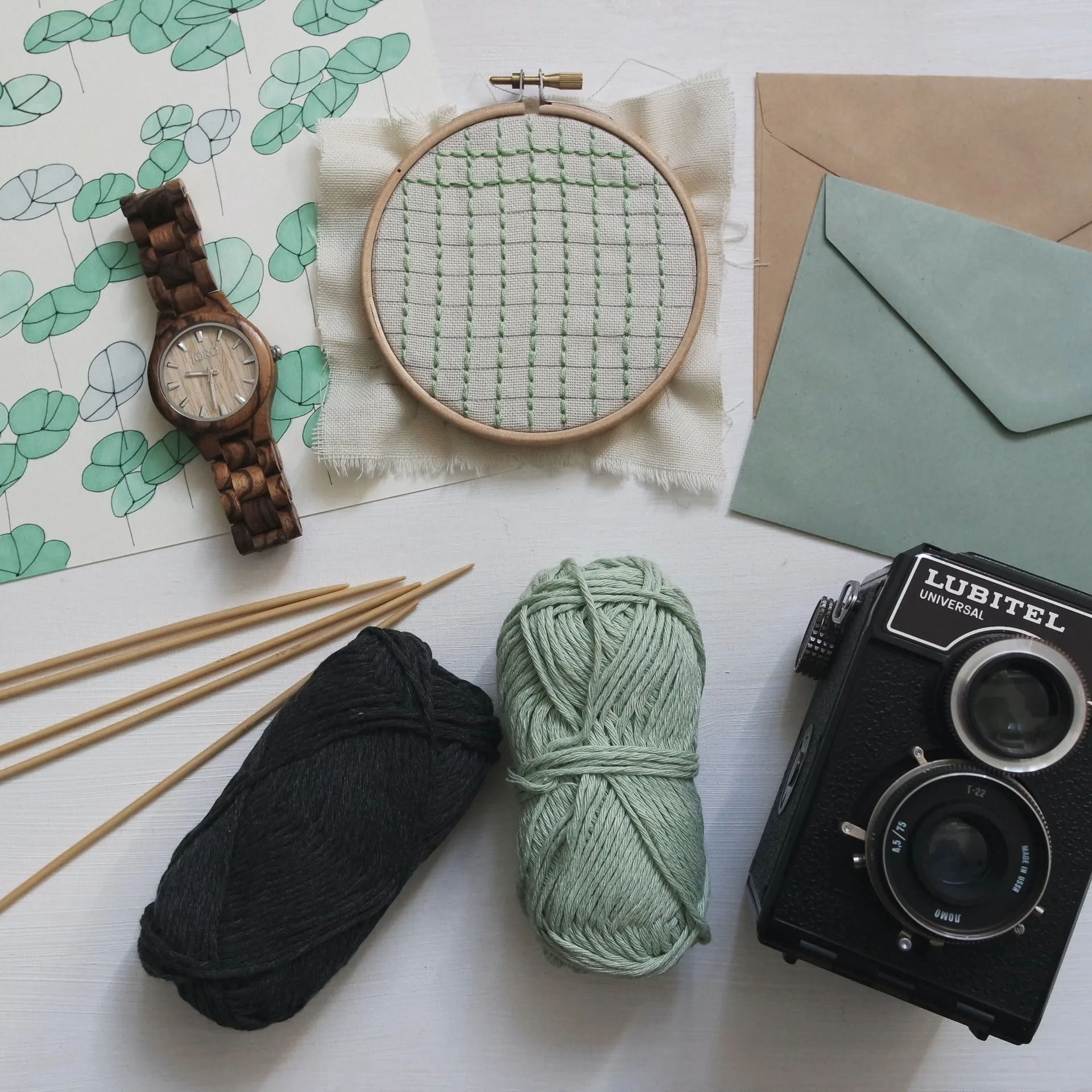With the coronavirus outbreak and self-isolation at home, a lot of us suddenly have a lot more free time on our hands. Now while COVID-19 is a serious issue, and we should all be practicing social distancing, we’re not immune to cabin fever. In fact, being stuck inside, coupled with constant news alerts, may have us going crazy. Thankfully, there are a few activities that can help pass the time, as well as protect our health. In fact, this is the perfect time to pick up new hobbies.
Instead of spending all your free time confined to your screen, scrolling through your timeline and Netflix library, you can choose instead to immerse yourself in new hobbies. According to a study published in the Procedia – Social and Behavioral Sciences Journal, hobbies can help to increase your happiness, as well as reduce boredom, stress levels as well as your heart rate. Additionally, hobbies can also boost your creativity and cognitive health. Now with that said, why don’t you take this opportunity that social distancing has provided you with and pick up one of the below-mentioned hobbies? Doing so won’t only help keep you occupied, but you’ll also reap plenty of health benefits.
12 Hobbies to master in quarantine
1. Learn how to dance
If you have two left feet, this would be the perfect time to master your two-step.
An enjoyable pastime, dancing offers a wide range of health benefits and is easily accessible to everyone. In addition to being an excellent workout, dancing has also been found to improve balance and flexibility, reduce the risk of dementia as well as reduce stress, and boost your happiness. ![fashion [longevity live]](https://longevitylive.com/wp-content/uploads/2019/04/barefoot-body-dance-327253-320x207.jpg)
Whichever form of dancing you’re looking to master, you’ll be happy to know that you can easily take some online dancing classes. In fact, dancers and choreographers are doing their best to keep people moving through online platforms like YouTube, Instagram Live, and even Zoom, which is often reserved for business meetings.
2. Become a MasterChef
This is the perfect time to figure out how to cook better. It won’t only be a healthy financial decision, but learning how to cook and prepare your own meals is also a good thing for your health.
In fact, cooking your own meals makes you healthier, it can help you lose weight, and it can even help you live longer. This is because when people prepare their own meals, they’re more conscious of what goes into it, opting for less processed and sugary ingredients in favor of more natural and nutritious options.
If you’re not sure where to start, here are some healthy recipes you can try to master.
3. Pick up gardening
If you’ve never had much of a green thumb, this would be the perfect time to start gardening.
Believe it or not, gardening can provide a number of health benefits. In one case, research published in the Medical Journal of Australia found that gardening daily helps to decrease the risk of dementia by 36%. A separate study also found that gardening helps to reduce the risk of heart attack and stroke by at least 30% (1).
Gardening is a relaxing experience and if you’re lucky enough to have a patch of green space, then make the most of your free time. That said, you can also create an indoor garden or a vertical garden with shade-friendly plants or even an indoor lemon tree (i.e. Meyer Lemons). There are plenty of online tutorials that can help you master your green thumb.
4. Learn how to play an instrument
Yes, learning how to play an instrument can be quite difficult after a certain age, but that doesn’t mean that it’s impossible. Also, you have some time to master your craft.
 Dusting off that old guitar or piano in the house and learning how to play them can help to boost your creative skills, as well as reduce feelings of anxiety and depression. It can also raise your IQ and improves eye-hand coordination and fine-motor skills.
Dusting off that old guitar or piano in the house and learning how to play them can help to boost your creative skills, as well as reduce feelings of anxiety and depression. It can also raise your IQ and improves eye-hand coordination and fine-motor skills.
Speaking of IQ levels, if you want to learn more about how IQs in general or an IQ test works, we recommend giving this article a read: What is an IQ test.
You can find plenty of free tutorials and lessons on YouTube, and if you’re trying to master the guitar, the popular guitar company Fender Play is currently offering three free months on their app.
5. Become a yogi
If you’ve never been much of a yogi, or you just haven’t found the time to learn, then this would be the perfect time to pull out your yoga mat.
Yoga is one of the oldest practices in the world, and for good reason. It can improve your physical strength as well as your emotional and spiritual well being.
With more than 100 forms of yoga, you are spoiled for choice when it comes to choosing a firm that you’re comfortable with. As for where to start, there are a number of YouTube channels that focus solely on teaching yoga, as well as apps that encourage daily yoga practice at home.
6. Pick up a book
This is the perfect time to get through that reading list yours. Whether it’s an e-book or paperback, reading is a productive hobby that can easily help you pass time and improve your health. 
In fact, reading can help to reduce stress, improve memory, improve sleep, and boost brainpower.
7. Write it out
Be it journaling, blogging, or just simple creative writing, this is the time to put pen to paper.
Writing isn’t just an outlet for self-expression, but it’s also been found to help strengthen your immune system, reduce stress, and improve your memory, creativity as well as sleep.
8. Meditate
With the stressful impact that the news has on us, this is a hobby that you’ll find yourself doing more often than not.
Meditation is a great stress reliever that can ease your anxiety, and help you calm your thoughts and emotions. Additionally, meditation can also improve focus and memory, lower your blood pressure, and strengthen your immune system. 
If the current state of affairs is affecting your emotions and increasing your anxiety, you can learn how to meditate with apps like Headspace, Calm, and the UCLA Mindful App, which each offers an array of free meditation lessons.
9. Plug in your video games
Now you may feel that playing video games is the least productive way to spend your free time, but putting an hour aside to play a few games can boost your health.
In fact, video games help to improve your focus and determination, and they also help to boost your brainpower, helping you be more driven and productive.
10. Knit something
Now when you think of knitting, you may be thinking of your great-aunt knitting you a scarf for Christmas. Now while true, knitting is an enjoyable pastime that can help your health. There’s a reason as to why your great-aunt has been alive for so long.
Knitting helps to boost productivity, and it can also help to improve your mental health by making you happier. So, don’t shy away from picking up your mum’s knitting tools and watching a few videos on YouTube.
11. Learn a new language
Who knows which countries you’ll be looking to visit once you’re allowed to leave your house?
 While it’s easier to learn a new language at a younger age, learning it at a much older age can still reap the same benefits. In fact, bilingualism can help to slow the aging process of the brain, enrich your worldview, and make you smarter as well as more perceptive.
While it’s easier to learn a new language at a younger age, learning it at a much older age can still reap the same benefits. In fact, bilingualism can help to slow the aging process of the brain, enrich your worldview, and make you smarter as well as more perceptive.
Free learning apps like Duolingo and Babbel offer expert-crafted courses on everything from vocabulary to grammar to pronunciation.
12. Play some board games
Whether it’s a traditional jigsaw, Monopoly, or a Sudoku book, puzzles are a great way to stimulate your brain while quarantined.
If you are quarantined with friends, family, or roommates, challenge them to a friendly game of 30 seconds or scrabble. Doing so won’t only strengthen your bonds, but it will also be an invigorating and entertaining way to pass the time.
References
Eratay, E., Aydoğan, Y. (2015). Study of the Relationship Between Leisure Time Activities and Assertiveness Levels of Students of Abant Izzet Baysal University, Procedia – Social and Behavioral Sciences, Volume 191, Pages 2213-2218, ISSN 1877-0428, https://doi.org/10.1016/j.sbspro.2015.04.532.
Howe TE, Rochester L, Neil F, Skelton DA, Ballinger C. (2011). Exercise for improving balance in older people. Cochrane Database of Systematic Reviews, Issue 11. Art. No.: CD004963. DOI: 10.1002/14651858.CD004963.pub3.
Simons, L., Simons, J., McCallum, J., Friedlander, Y. (2006). Lifestyle factors and risk of dementia: Dubbo Study of the elderly. The Medical Journal of Australia. 184. 68-70. 10.5694/j.1326-5377.2006.tb00120.x.
Verghese, J., Lipton, R., Katz, M., Hall, C, et al. (2003). Leisure Activities and the Risk of Dementia in the Elderly. The New England journal of medicine. 348. 2508-16. 10.1056/NEJMoa022252.



![women [longevity live]](https://longevitylive.com/wp-content/uploads/2020/01/photo-of-women-walking-down-the-street-1116984-100x100.jpg)











One Comment